Vocabulary enhancement Reading Worksheets for Ages 6-7
86 filtered results
-
From - To
Boost your child's vocabulary with our engaging Vocabulary Enhancement Reading Worksheets designed for ages 6-7. These worksheets aim to make learning fun and interactive, helping young learners develop essential language skills. Each worksheet features exciting reading passages paired with vocabulary exercises that enhance comprehension and expression. Your child will explore new words in context while honing their reading abilities through targeted activities. Perfect for home or classroom use, our resources foster a love for reading and enrich language development. Give your child the tools they need to succeed with captivating, age-appropriate content that ignites curiosity and builds confidence in their reading journey.
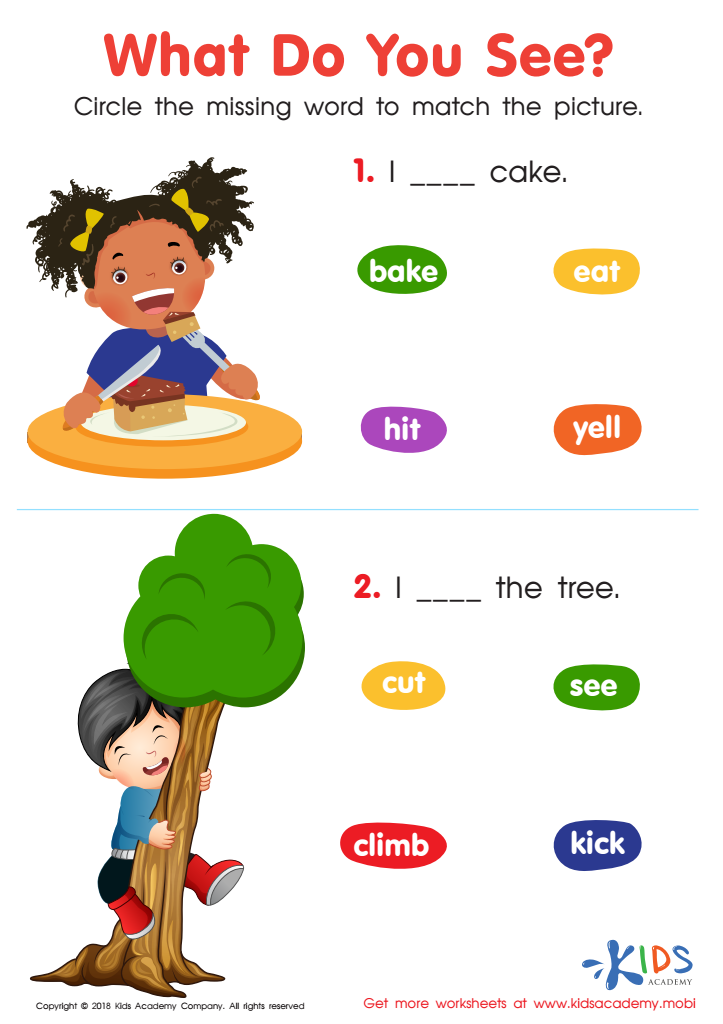

What Do You See? Reading Worksheet
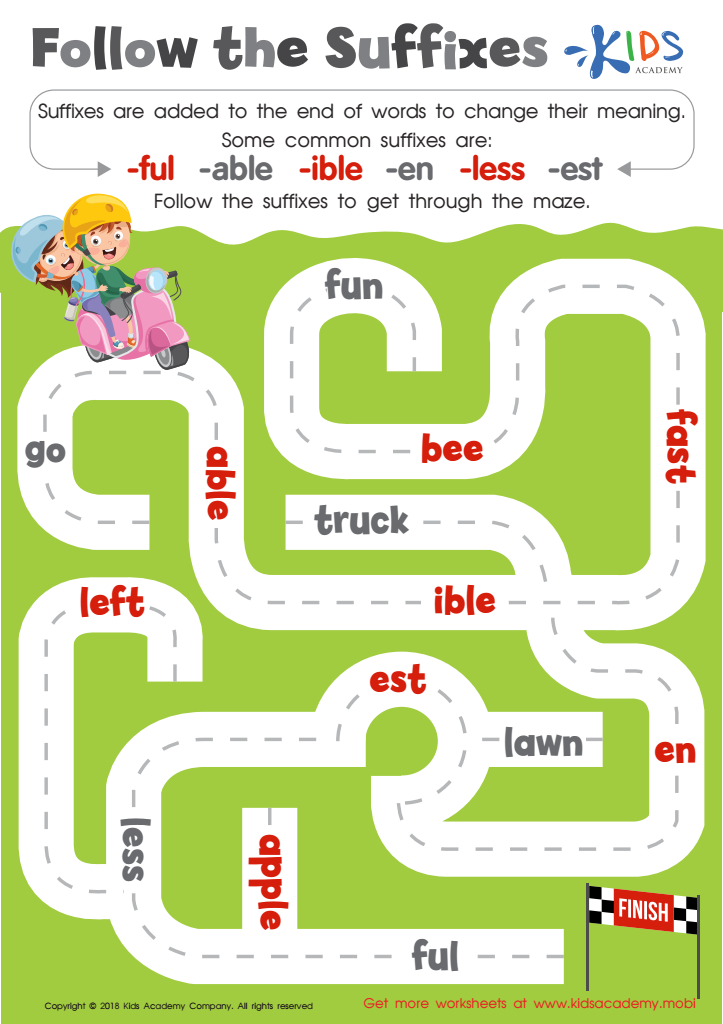

Reading: Follow the Suffixes Worksheet
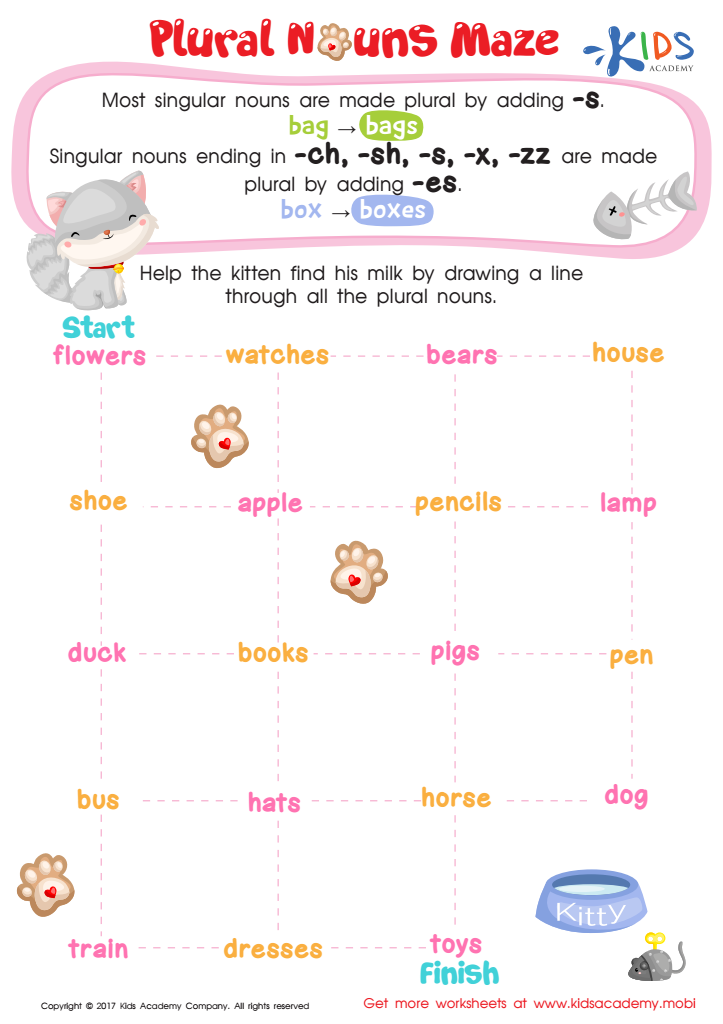

Plural Nouns Maze Worksheet
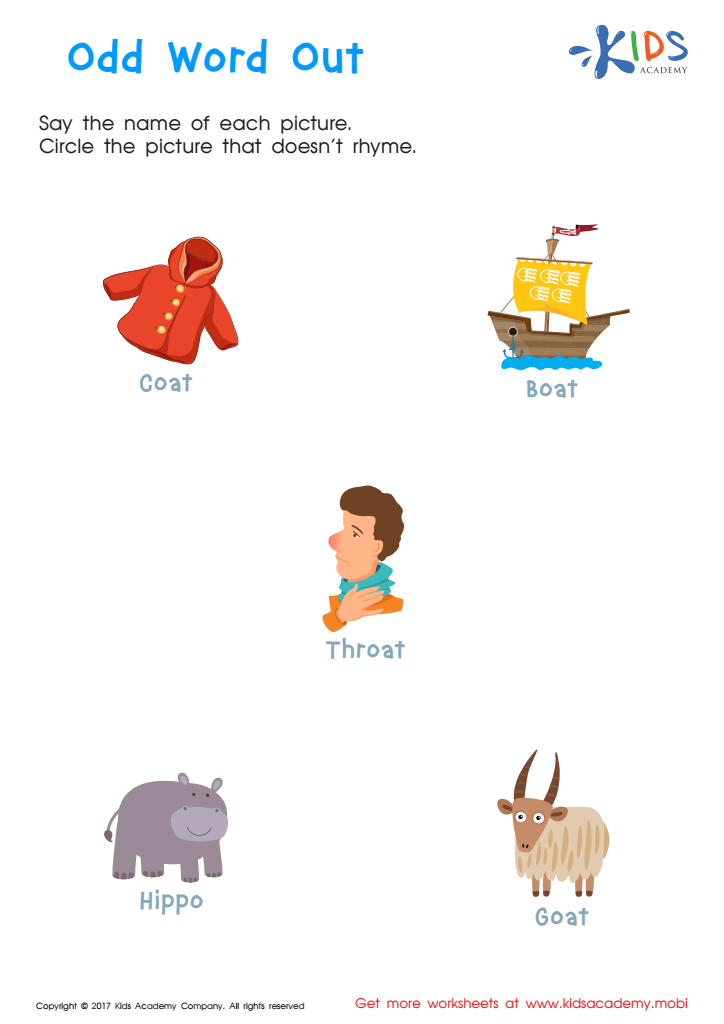

Odd Word Out Rhyming Worksheet
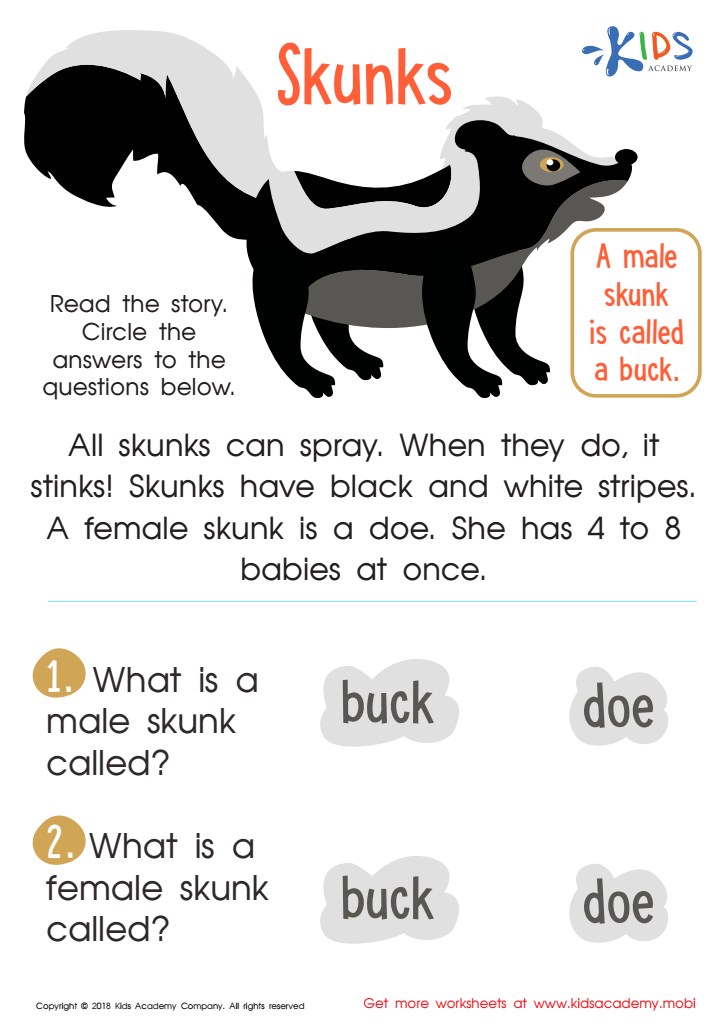

Skunks Worksheet
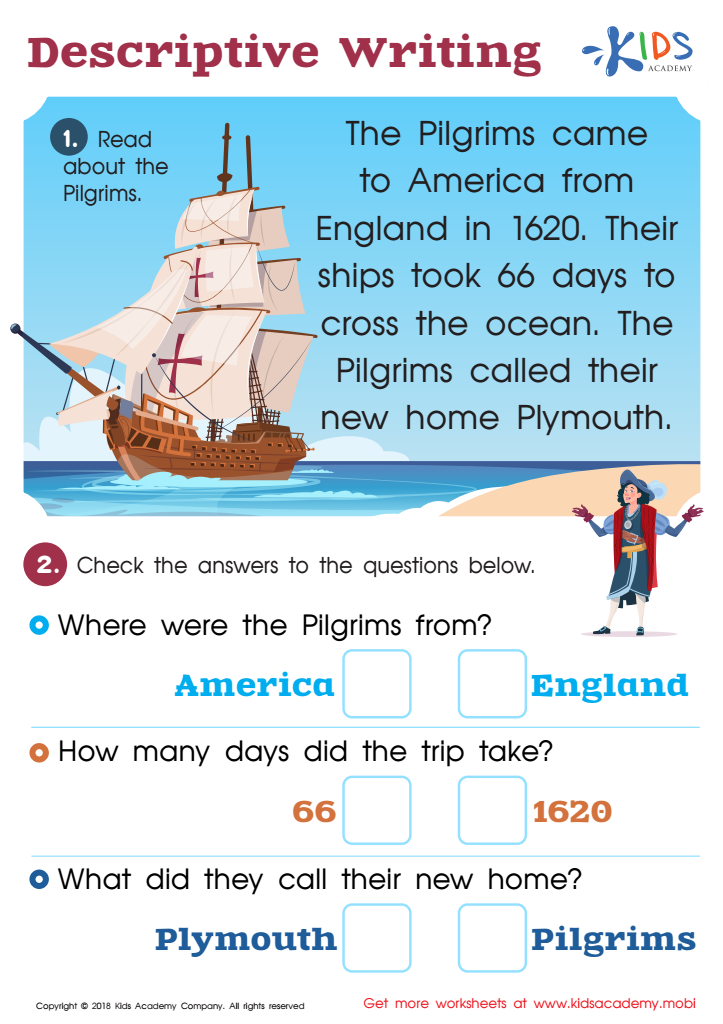

Descriptive Writing Worksheet: Part 1
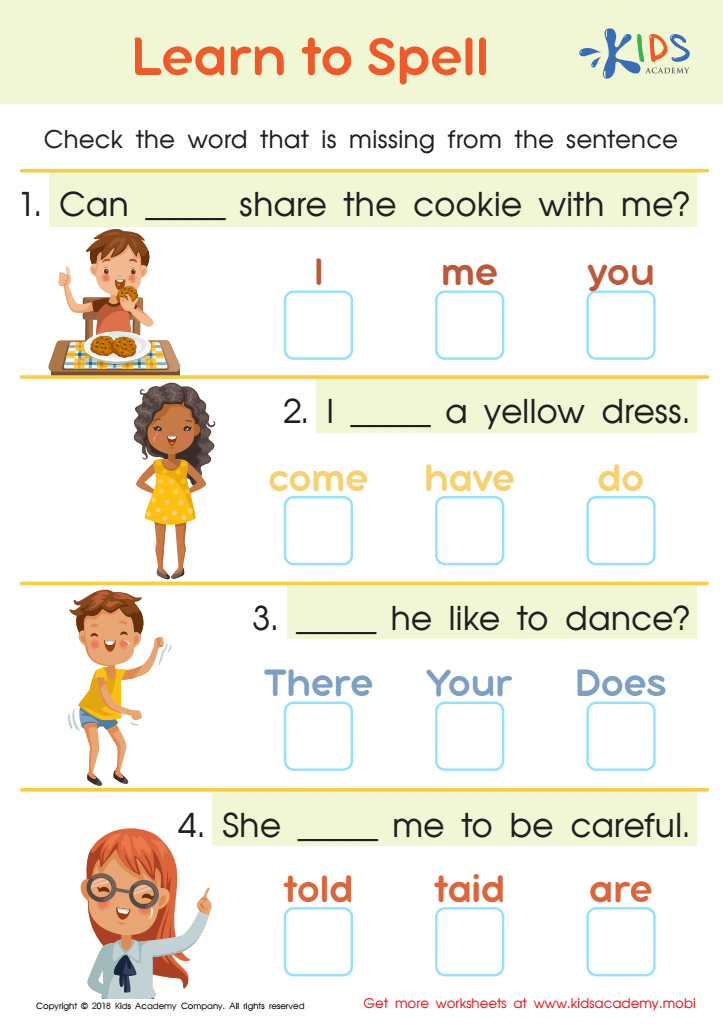

Learn to Spell Worksheet
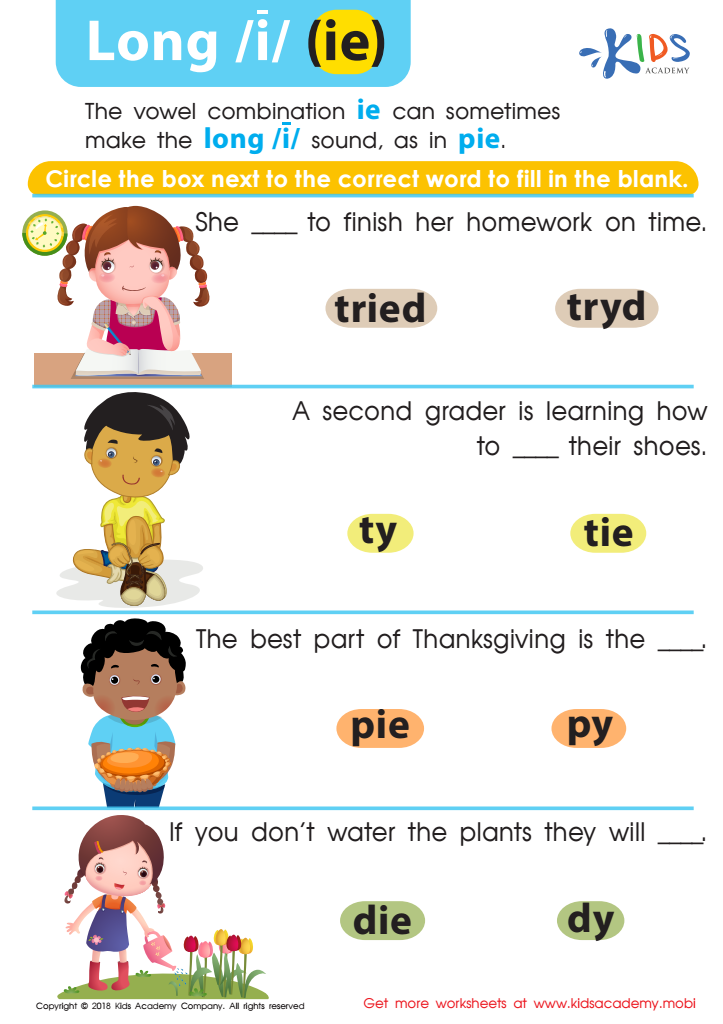

Reading: Long I and IE Worksheet
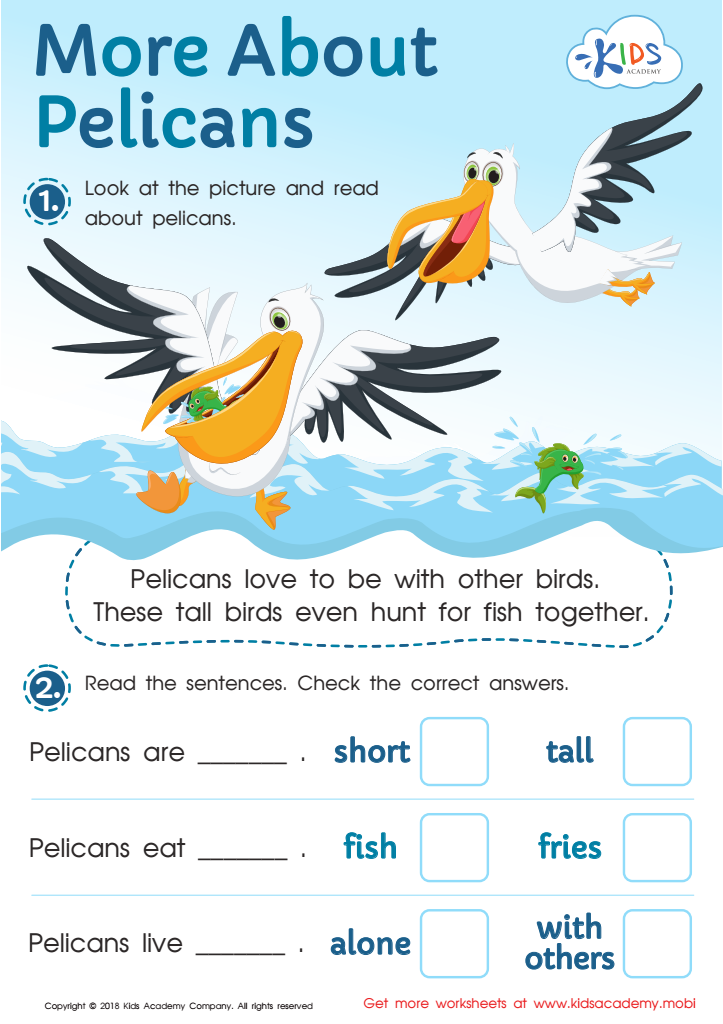

More About Pelicans Worksheet
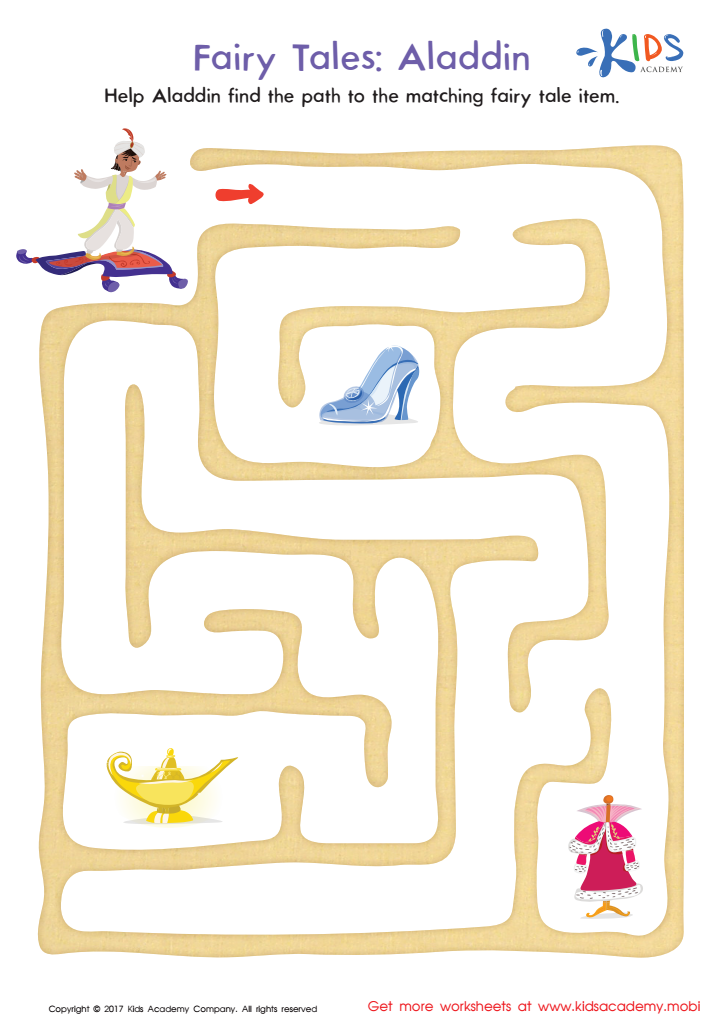

Fairy Tales Aladdin Printable
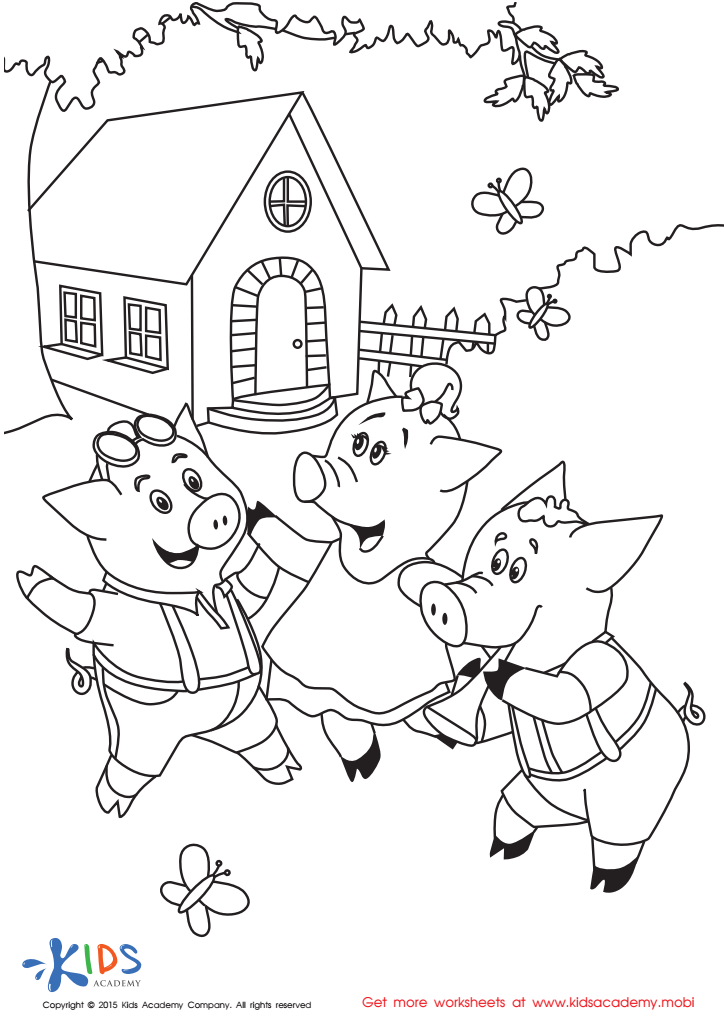

Folktales Printable PDF Worksheet: The 3 Little Pigs
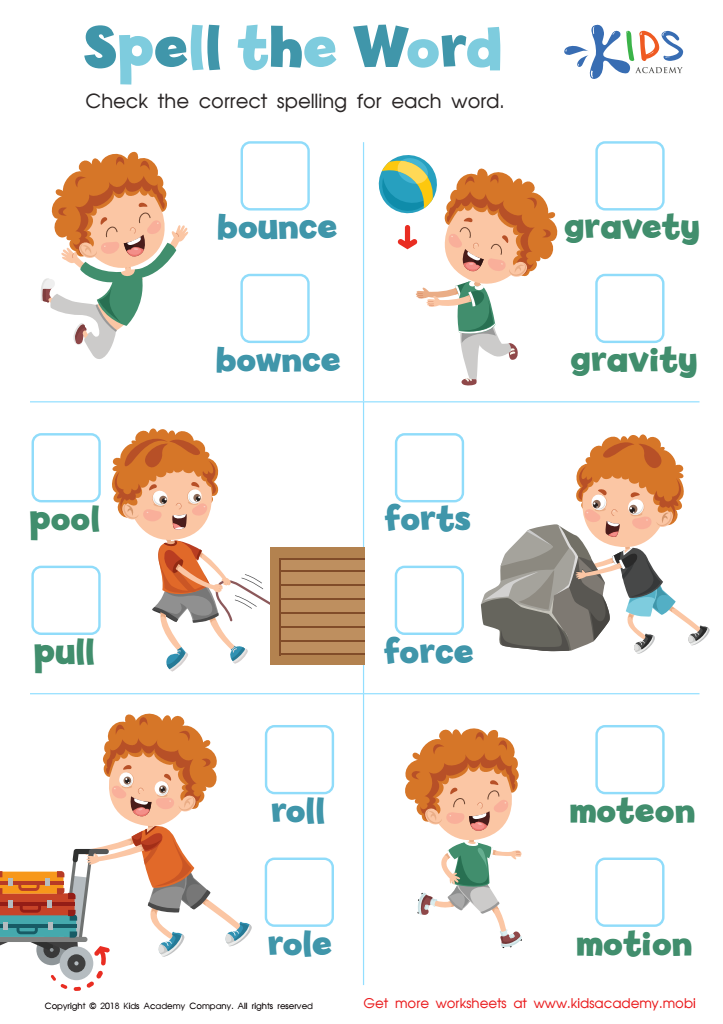

Spell the Word Worksheet
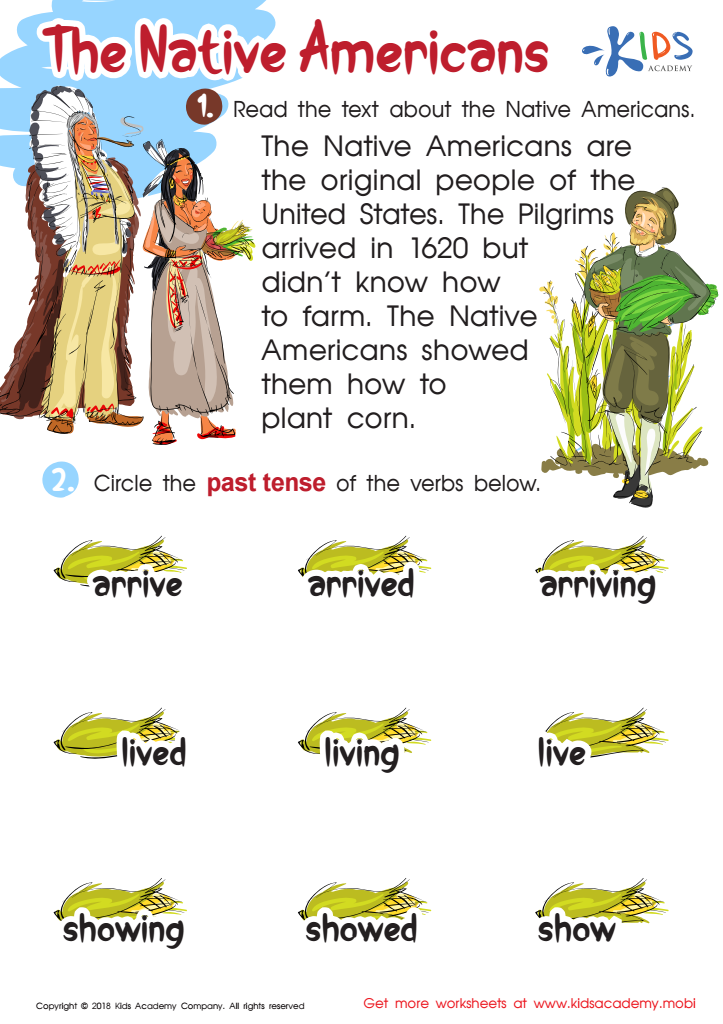

The Native Americans Worksheet
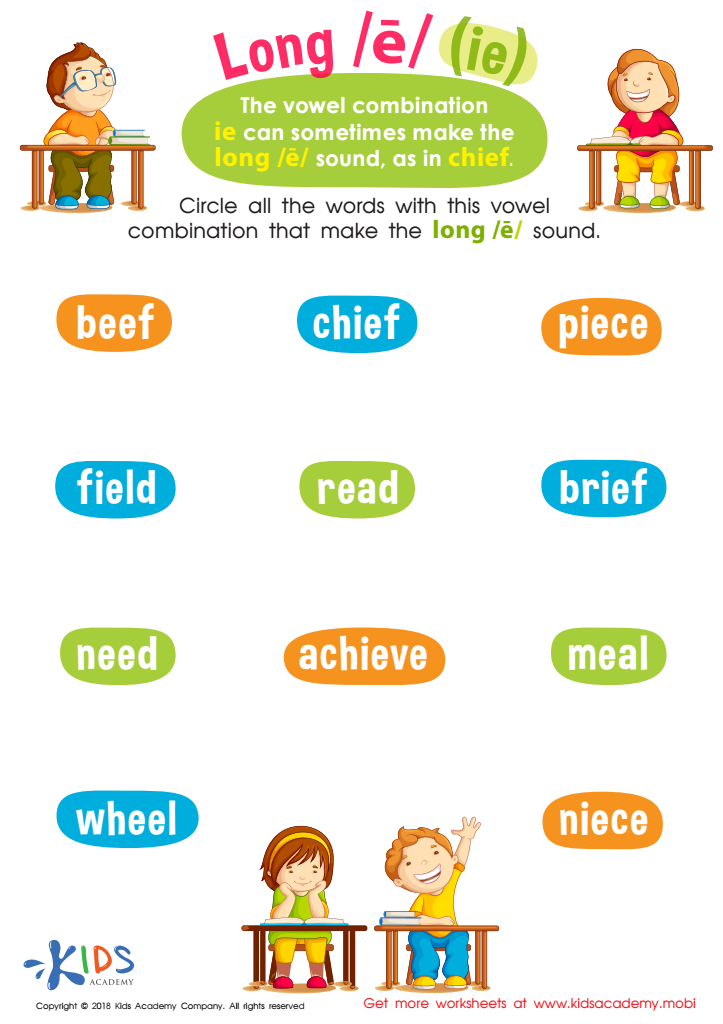

Reading: Long E and IE Worksheet
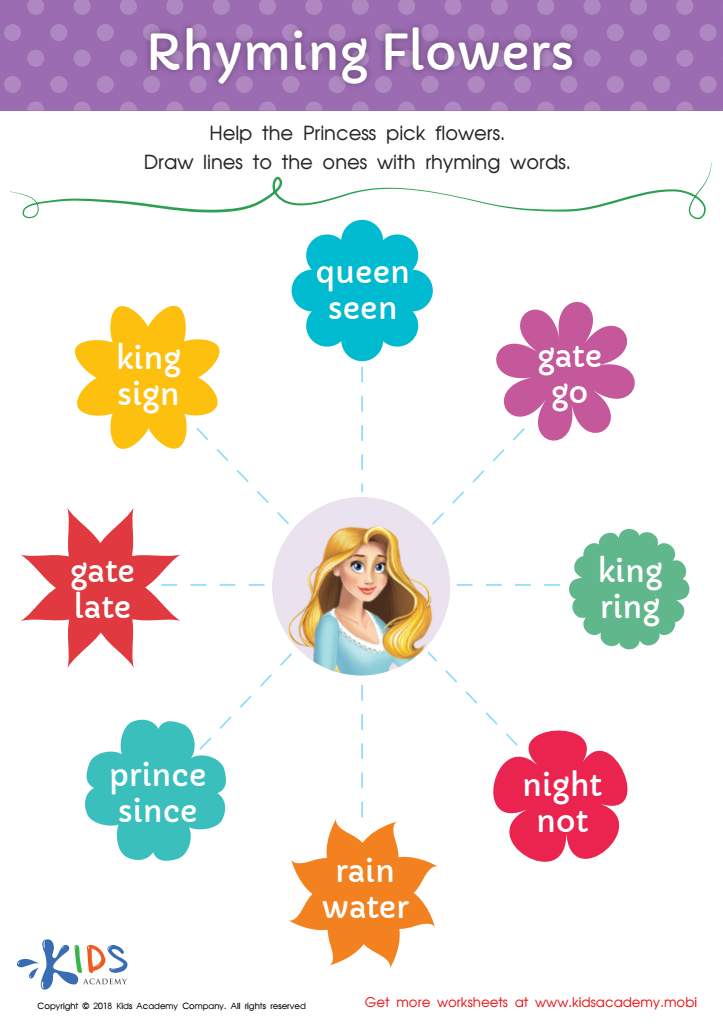

Rhyming Flowers Worksheet
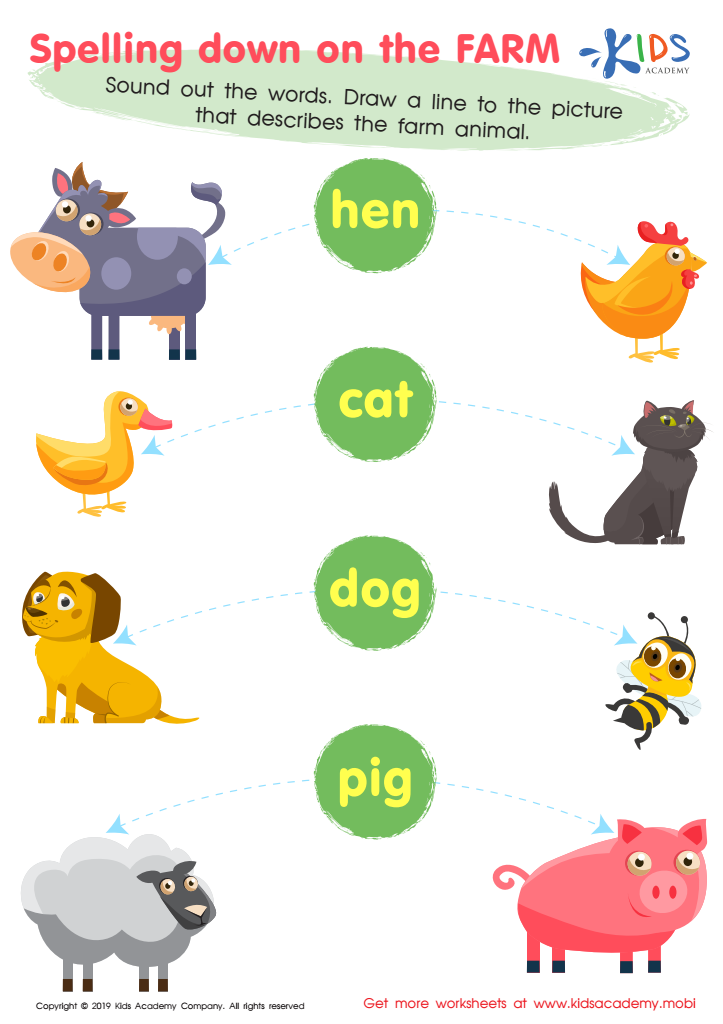

Spelling Down on the Farm Worksheet
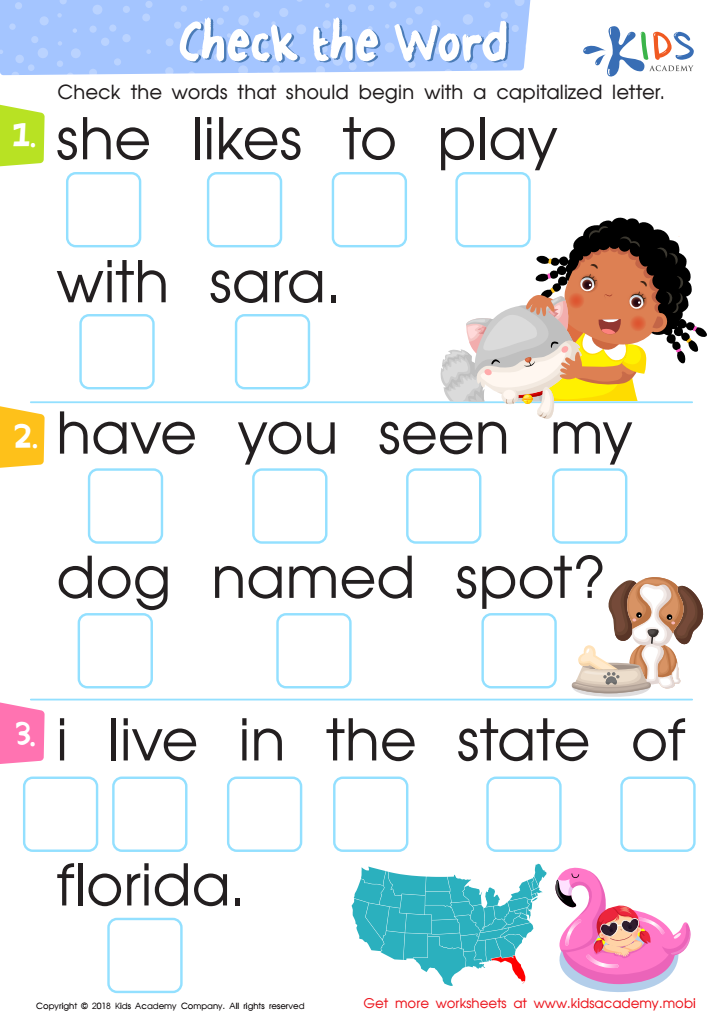

Check the Word Worksheet
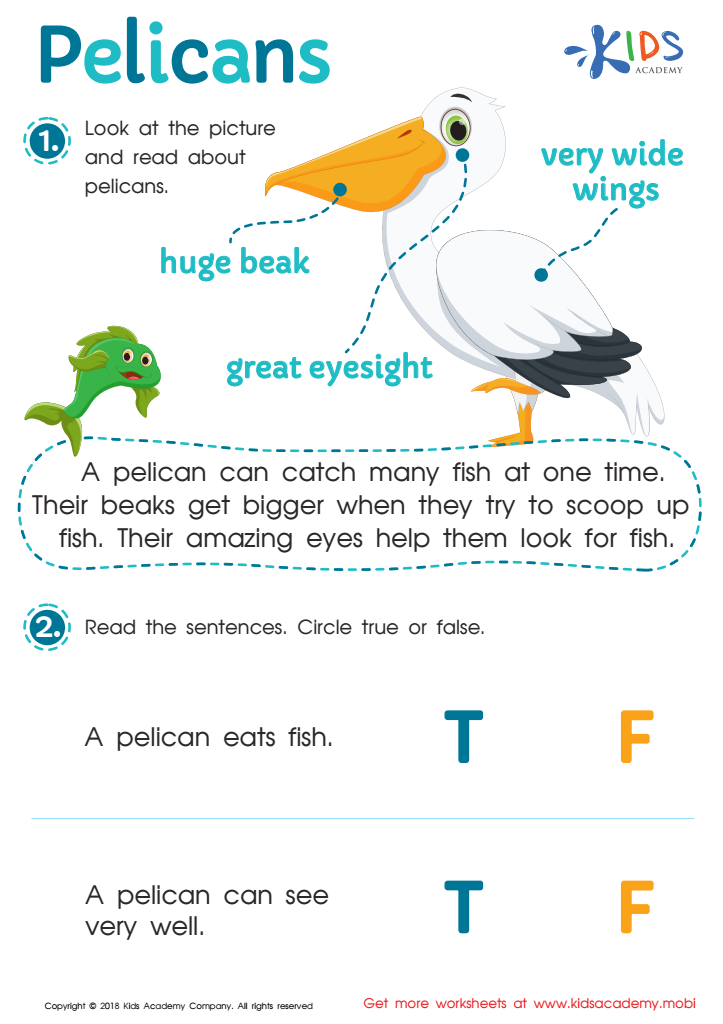

Pelicans Worksheet
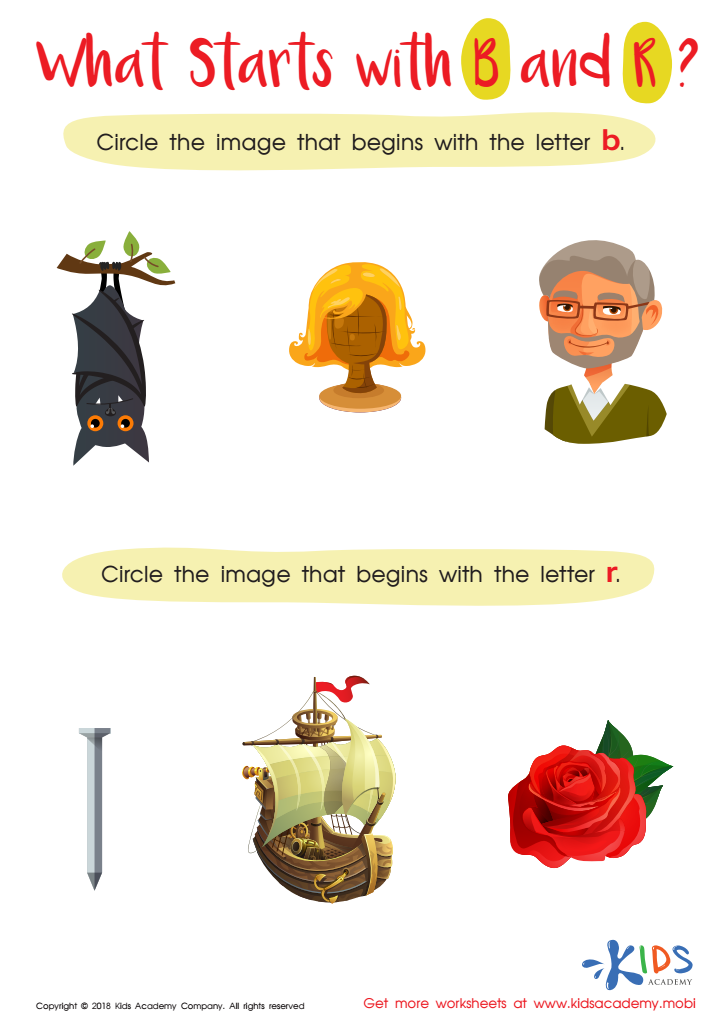

What Starts with B and R? Worksheet
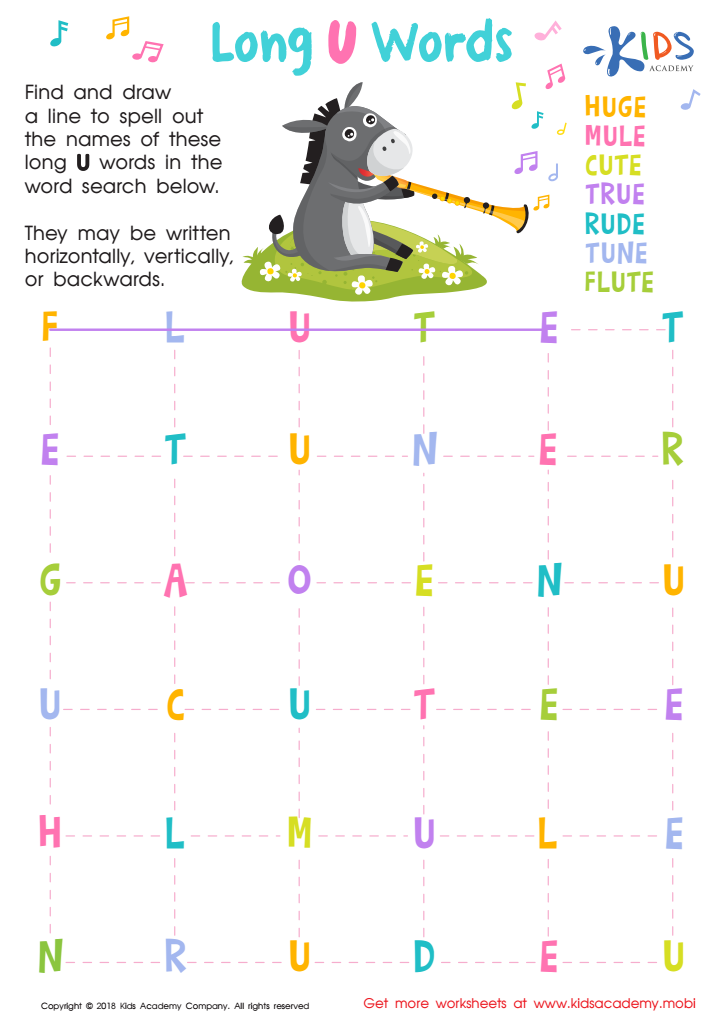

Long /u/ Words Worksheet
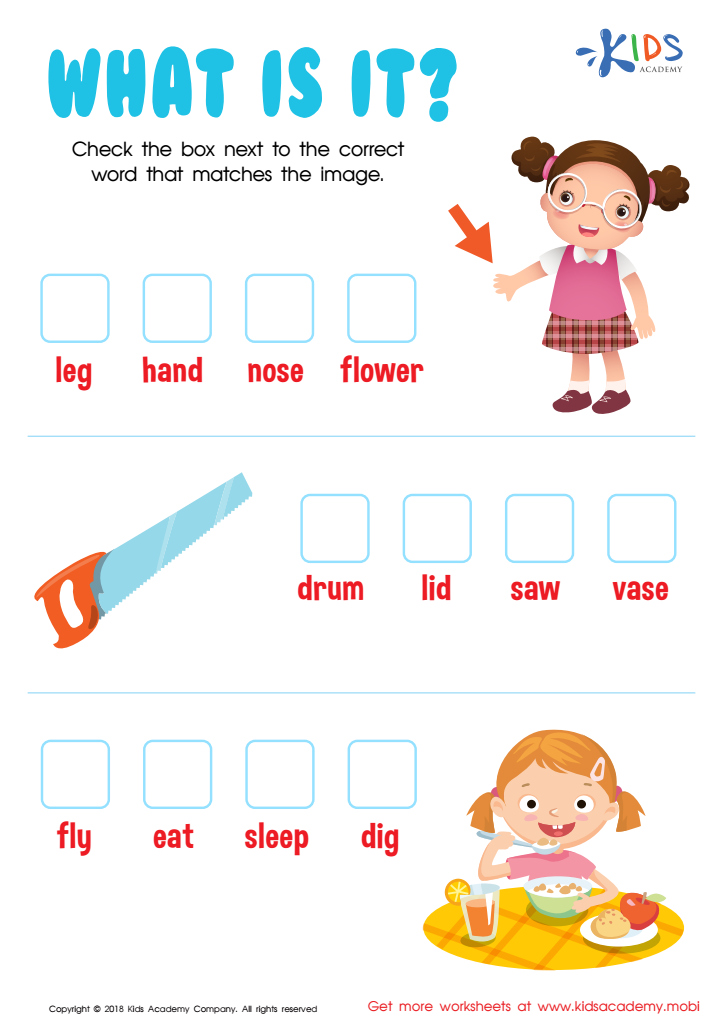

What Is It? Worksheet
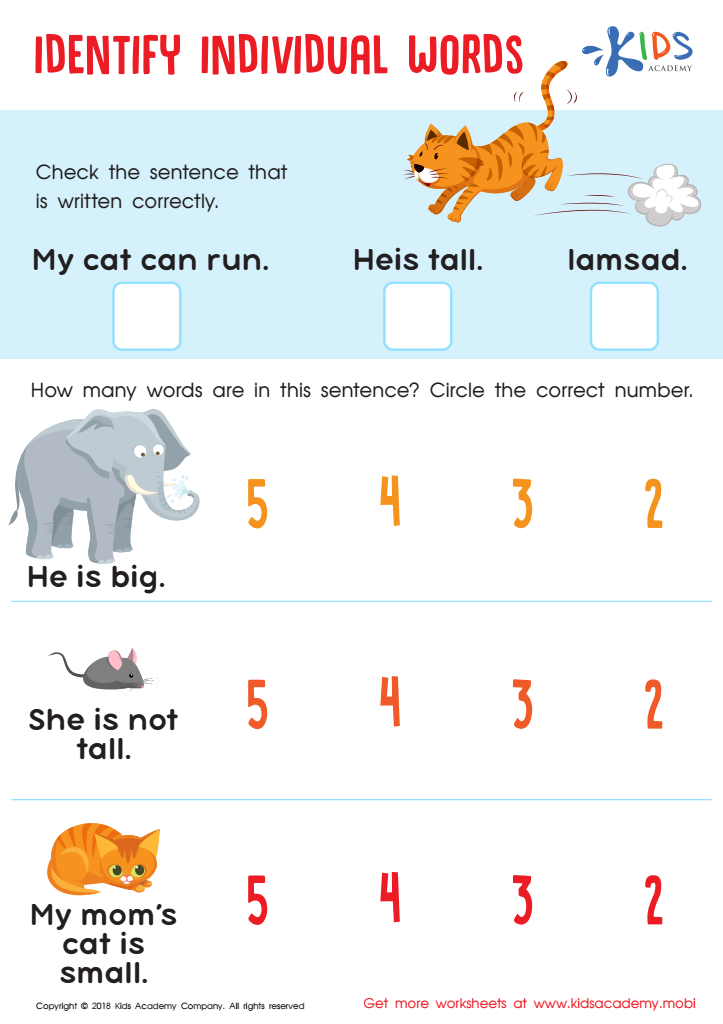

Identify Individual Words Worksheet
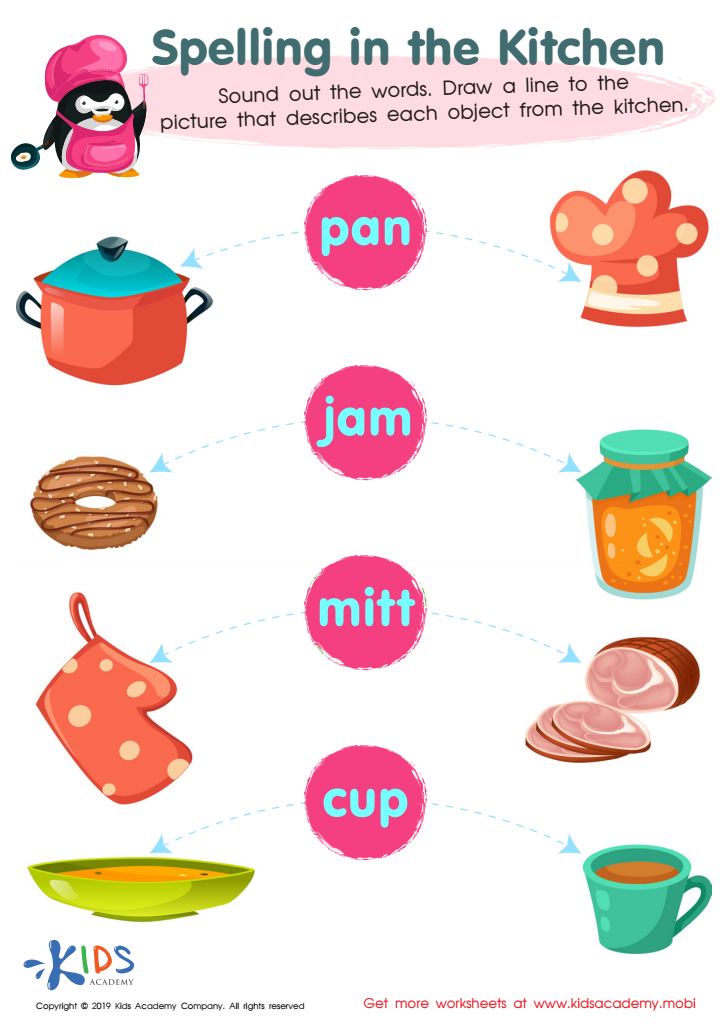

Spelling in the Kitchen Worksheet


The 5 Sense Scientist Worksheet
Vocabulary enhancement through reading for children aged 6-7 is crucial for several reasons. At this developmental stage, children's brains are exceptionally receptive to language acquisition. A rich vocabulary not only allows them to articulate their thoughts and feelings more clearly, but it also enhances their comprehension skills, enabling them to better understand what they read and hear.
Exposure to a variety of words through reading mitigates the risk of future reading difficulties, laying a strong foundation for academic success. As reading skills grow, children become more confident learners, eager to engage with complex texts both in school and beyond. Enhanced vocabulary is linked to improved communication skills and overall literacy, which are essential for success in all subjects.
Moreover, an expansive vocabulary contributes to social and emotional development, allowing children to express themselves effectively and build interpersonal relationships. For parents and teachers, fostering a love for reading paired with vocabulary enrichment can create a supportive learning environment that encourages exploration, critical thinking, and creativity. Ultimately, investing time in reading and expanding vocabulary lays the groundwork for lifelong learning and achievement, making it a priority for caregivers and educators alike.

 Assign to My Students
Assign to My Students








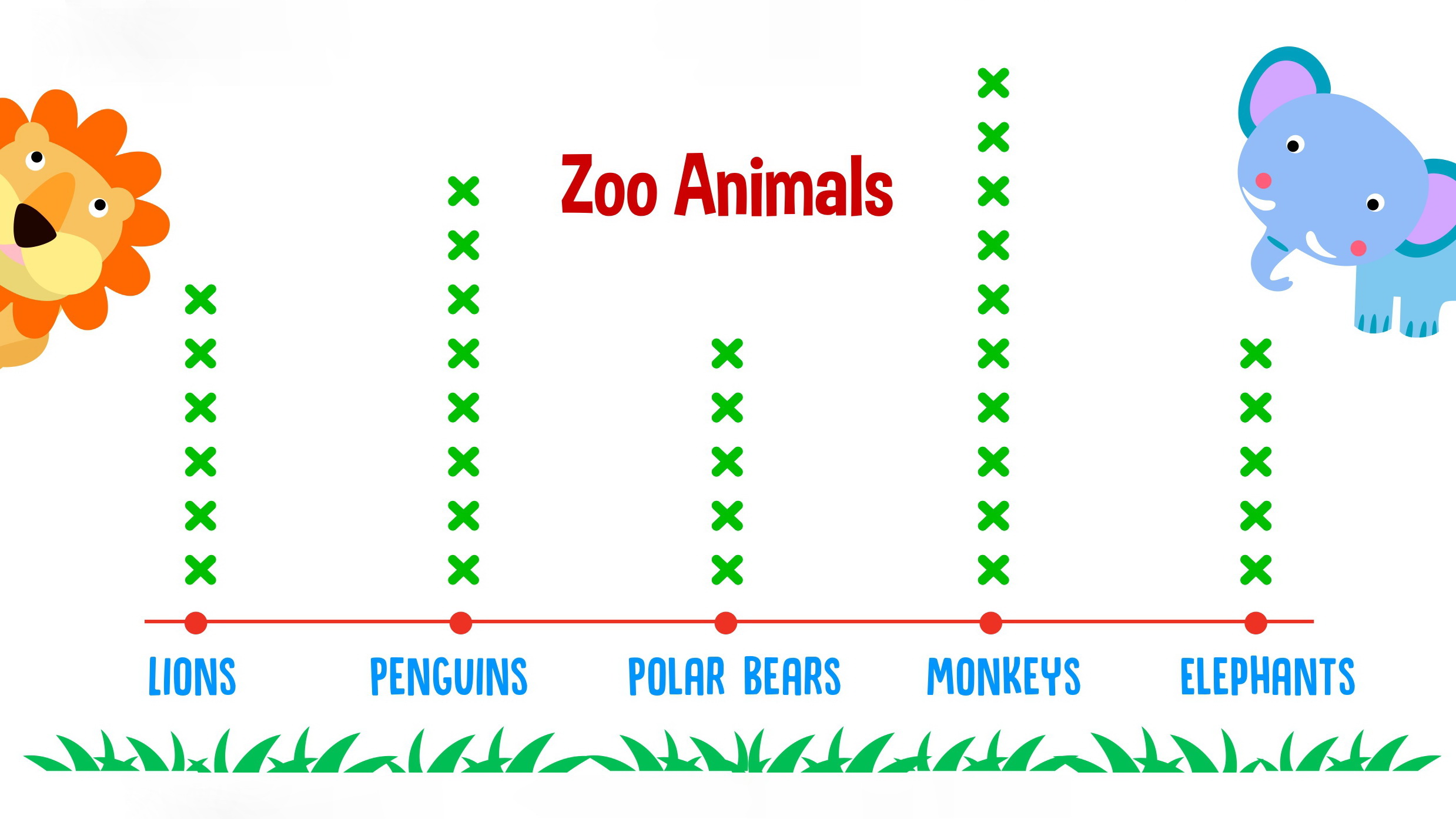
.jpg)












